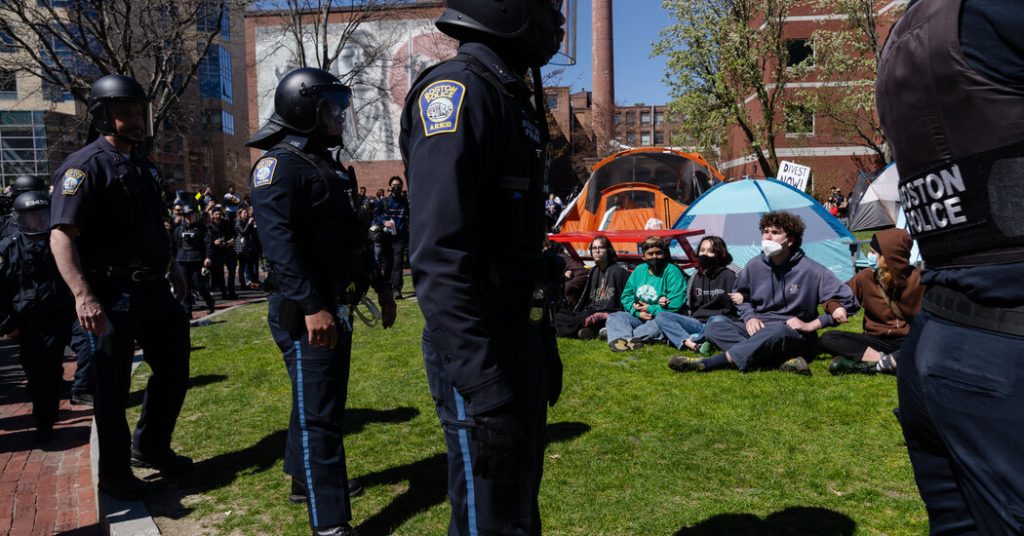In recent days, colleges across the United States have been grappling with a surge in student activism regarding Israel’s military campaign in Gaza. This has led to tense situations between protesters and police on various campuses. At Northeastern University, police officers surrounded a group of pro-Palestinian protesters, but abruptly left without making any arrests. Similar encounters have occurred at other campuses such as Emory University, where arrests were made. The decisions made by administrators on how to handle these situations have been met with criticism, regardless of the approach taken.
At Northeastern, tensions escalated when protesters refused to show student IDs as requested by university officials and the police. The situation was ultimately resolved when the Boston Police Department decided to leave without making any arrests. However, the following morning, Massachusetts State Police officers arrived and began arresting protesters, claiming the protest had been “infiltrated by professional organizers” and involved antisemitic rhetoric. This led to a scramble to arrest individuals, with students showing their university IDs being released, while others were taken into custody.
Similar incidents have unfolded on other campuses, including at Emerson College in Boston, where police stormed a student encampment, leading to the arrest of 118 people. While some city officials defended these actions as necessary to address safety concerns, students criticized the university for failing to protect them. The situation has been further complicated by the presence of outside provocateurs and conflicting narratives regarding the events that transpired.
The surge in pro-Palestinian activism on college campuses has drawn both support and opposition from various quarters. This has raised concerns about campus safety, antisemitic rhetoric, and the appropriate response to student protests. While some institutions have attempted to negotiate with protesters, others have taken a more forceful stance, resulting in arrests and contentious confrontations. These volatile situations have put pressure on administrators to navigate complex legal, ethical, and public relations challenges.
The response to these protests has varied among universities, with some choosing to involve law enforcement to maintain order and others opting for dialogue and negotiation. The decisions made by administrators often reflect a delicate balancing act between upholding campus rules, ensuring student safety, and managing public perception. External pressures from political figures, alumni, and donors can further complicate the decision-making process, making it challenging for university leaders to navigate these crises effectively.
The handling of student protests on college campuses has broad implications for campus culture, academic freedom, and the overall reputation of the institution. University leaders must consider multiple perspectives and weigh the potential consequences of their actions when responding to protests. The complexity of these situations underscores the need for clear communication, transparency, and a commitment to upholding the values of free speech and civic engagement in higher education.


